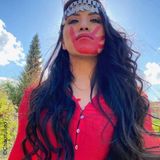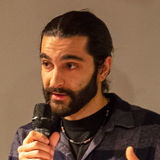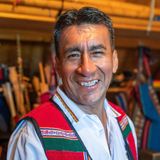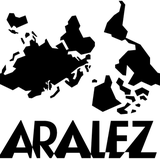In the run-up to Indigenous Liberation Day on October 12th, Aralez is organising a three-part series on climate justice and reparations from Indigenous and decolonial perspectives. During the series, the link will be made between colonial history, neo-colonialism and today’s climate crisis. The first session will be on the impact of more than 500 year’s colonialism and how it shaped our institutions and minds reproducing colonial outcomes. How can we develop, implement and integrate holistic reparations? We will share Indigenous views and cosmovisions that can help contribute to imagining reparatory justice and a just future restoring harmony, reciprocity and balance.



The next editions wil be on 8th and 19th of June at Pakhuis de Zwijger.
About the speakers
Chautuileo Tranamil has worked on a global scale with grassroots communities, especially Indigenous people. As a Mapuche-Pewenche herself, she is committed to the well-being of Indigenous communities around the world. She is co-founder of Aralez and co-founder of Indigenous Liberation.
Max Arto de Ploeg is a community builder, grassroots organiser, moderator, musician, teacher, and public speaker. He is co-founder of Aralez and Indigenous Liberation and coordinator at Together Against Racism, Decolonial Learning Sessions and Reparations conference.
Roberto Callisaya Hilara is Aymara Bolivian, who has been living in the Netherlands for some time and, together with his brother, who lives in Bolivia, has set up a foundation called Yatiyana to realise and promote traditional culture and social projects. Yatiyaña is an Aymara word that means ‘communication and passing on’. He himself will share music with us through flute.
About Indigenous Liberation
Currently, Indigenous rights and self-determination rights are being violated worldwide. Colonial capitalism ensures further marginalisation of Indigenous peoples and privatisation of land, resources and raw materials. The result is a global climate and environmental catastrophe.
That is why it is important that Indigenous voices are heard. Not only for the self-determination and human rights aspect but also because it is important that we learn from their knowledge, spirituality and culture. Knowledge that is necessary for the decolonisation process, the restoration of our relationship with mother earth and the regeneration process of nature.
Indigenous Liberation does a yearly mobilisation surrounding October 12th, the day Columbus invaded Abya Yala. We do this together with a coalition of Indigenous diaspora and solidarity organisations including a festival at Pakhuis de Zwijger.





